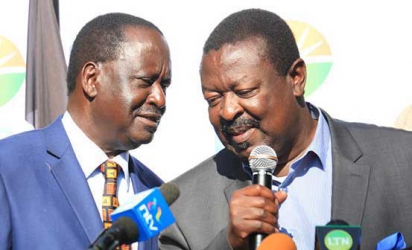×
The Standard e-Paper
Kenya’s Boldest Voice

NAIROBI, KENYA:
NAIROBI, KENYA: National Super Alliance (NASA) leader Raila Odinga on Wednesday rubbished Communications Authority of Kenya’s rebuttal of allegations that Safaricom engaged in electoral malpractices during the August 8 elections.